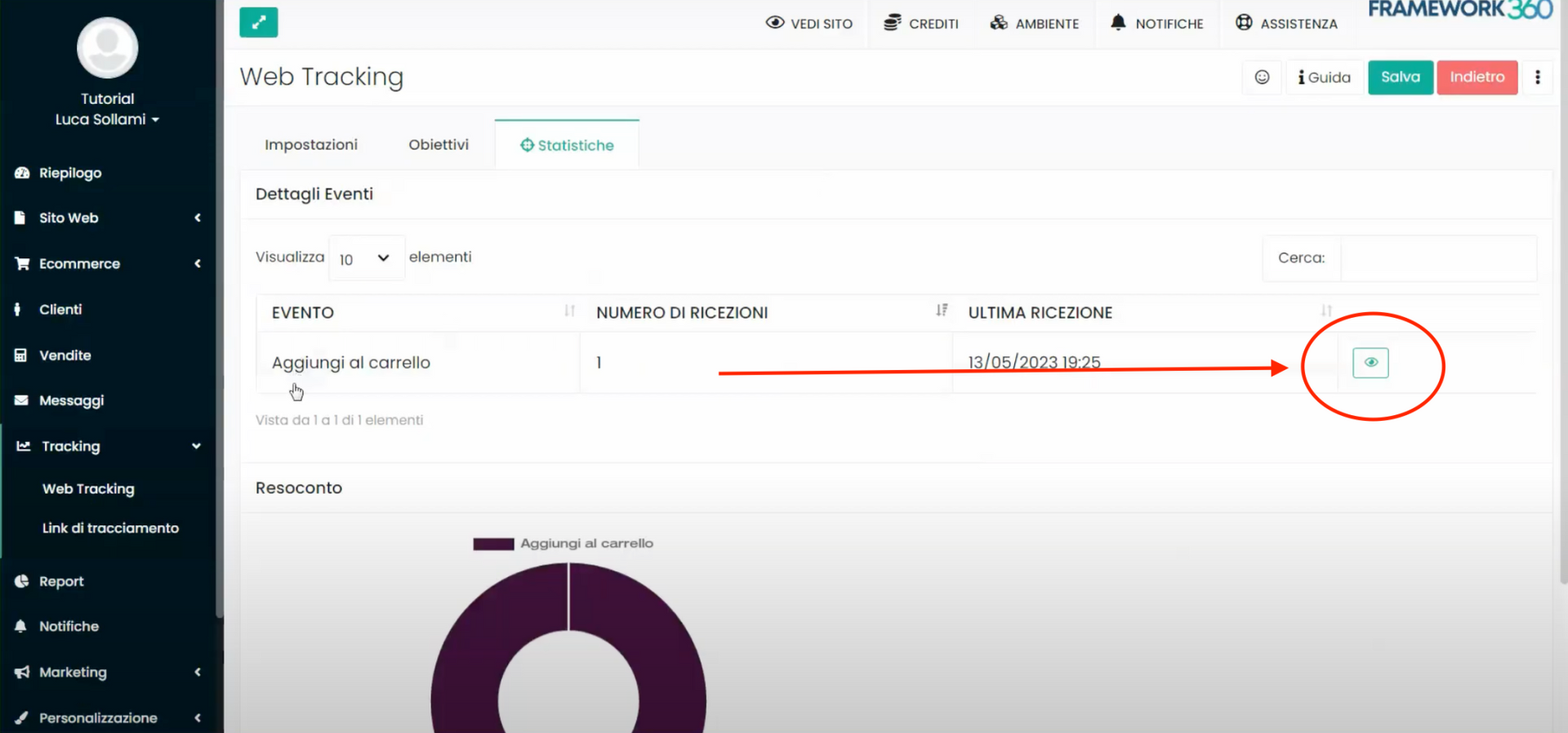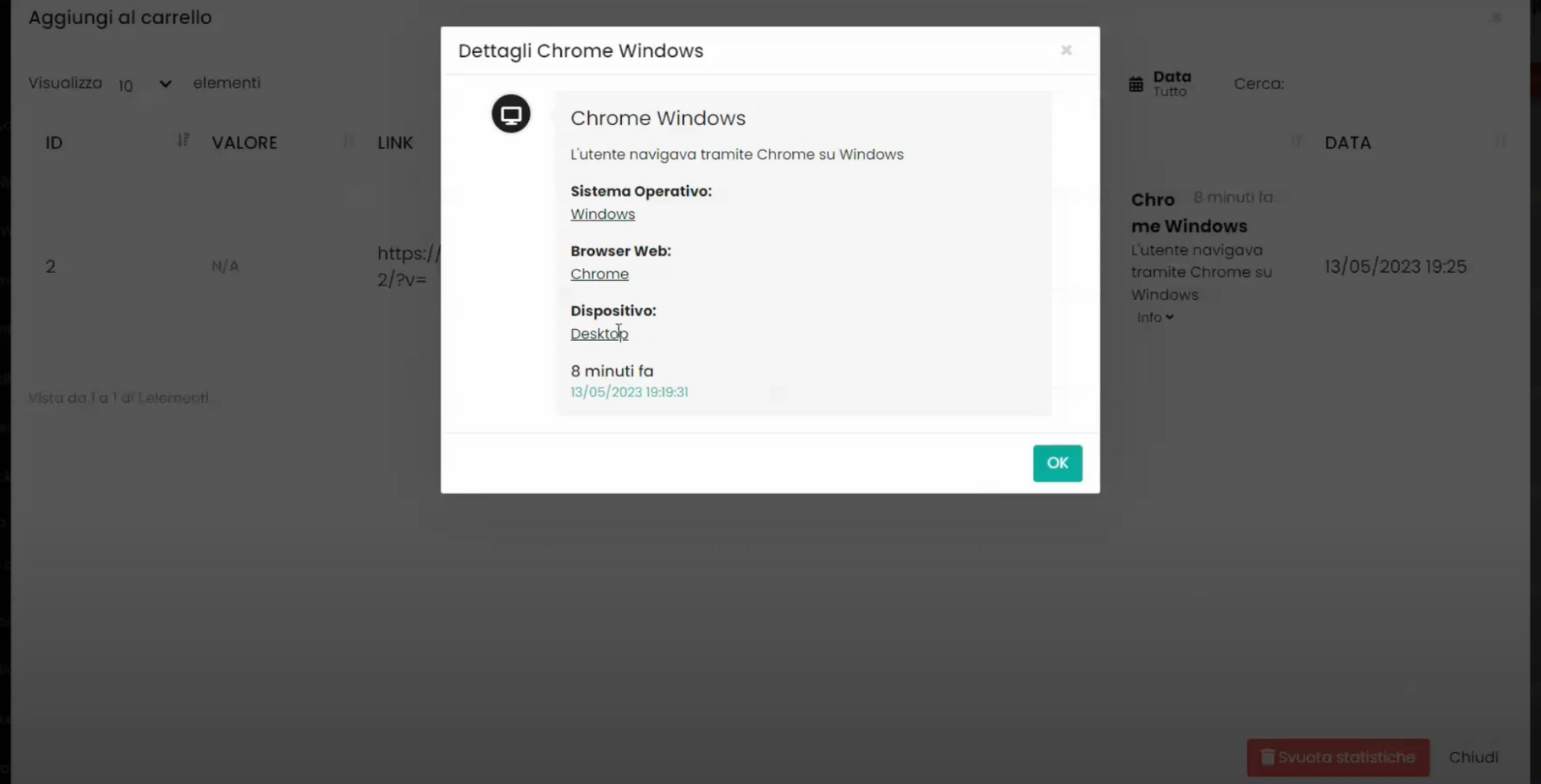In this article, we will see how to track the "Add to Cart" action on an e-commerce website based on Framework360.
By enabling the "Add to Cart" action, Framework360 will record when a user clicks on the "Add to Cart" button and, if applicable, will also send tracking data to advertising platforms such as Facebook ADS, Google ADSL, etc.
Step 1: Access the "Web tracking" section of Framework360
To begin, we need to access the back office of Framework360 and then click on "Tracking" and then on "Web tracking" in the sidebar on the left.
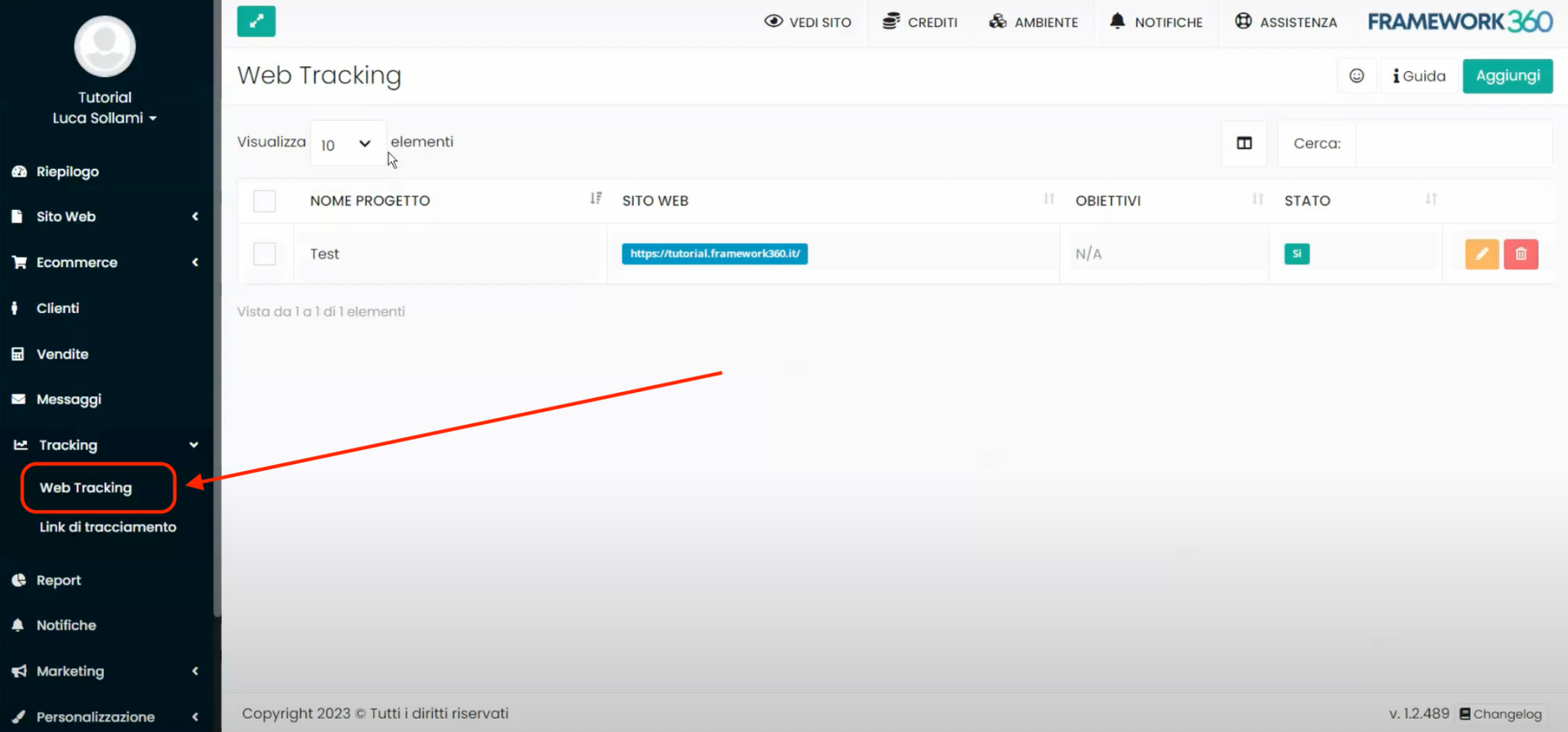
At this point, we need to create a new click tracking project by clicking on the top right button "Add", or if we have already created one previously, we can click on it to modify it by implementing the tracking of the add-to-cart action.
To understand how to create a tracking project, we recommend consulting the dedicated tutorial by clicking here. In this tutorial, we will limit ourselves to specifically analyzing the implementation of the tracking of the add-to-cart action.
Therefore, by clicking on an already realized tracking project, we will be able to enter the customization screen of the project. This latter is divided into three tabs: General, Goals, and Statistics.
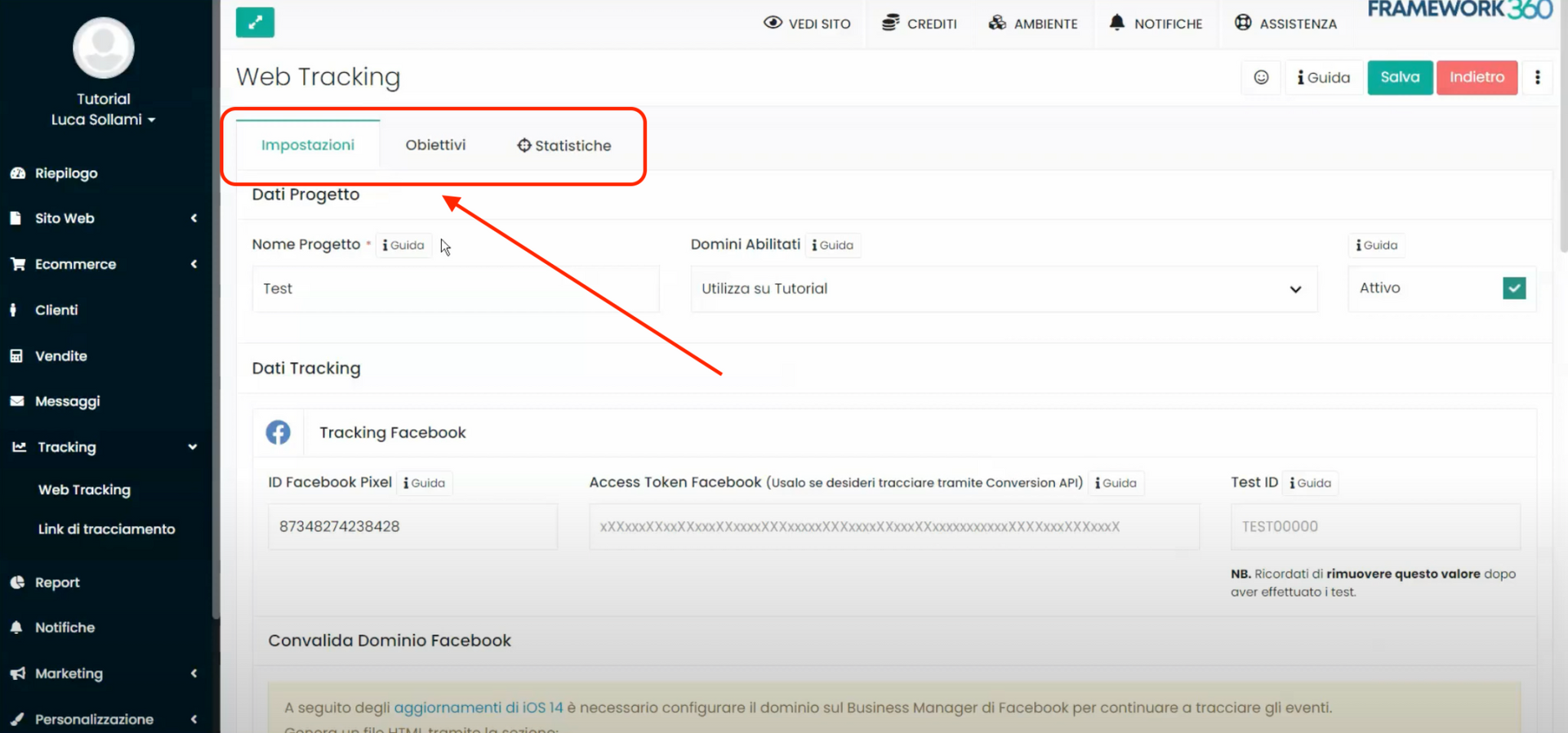
Within the tab “General”, we will enter all the general data of the project, including tracking data, that is, the linking of the respective tracking software from various advertising platforms such as, for example, Facebook Pixel.
Within the tab “Objectives”, we can insert the various objectives to be tracked with the project we are creating, including the user's action of adding to cart.
Finally, within the tab “Statistics”, we will have a report of all actions tracked by the project.
Step 2: Activate the "Add to Cart" objective
To activate tracking of the add to cart action, we need to go inside the "Objectives" tab of the tracking project and look for the "Add to Cart" objective. By clicking on "Activate", a box will open where we can set the settings of the objective.
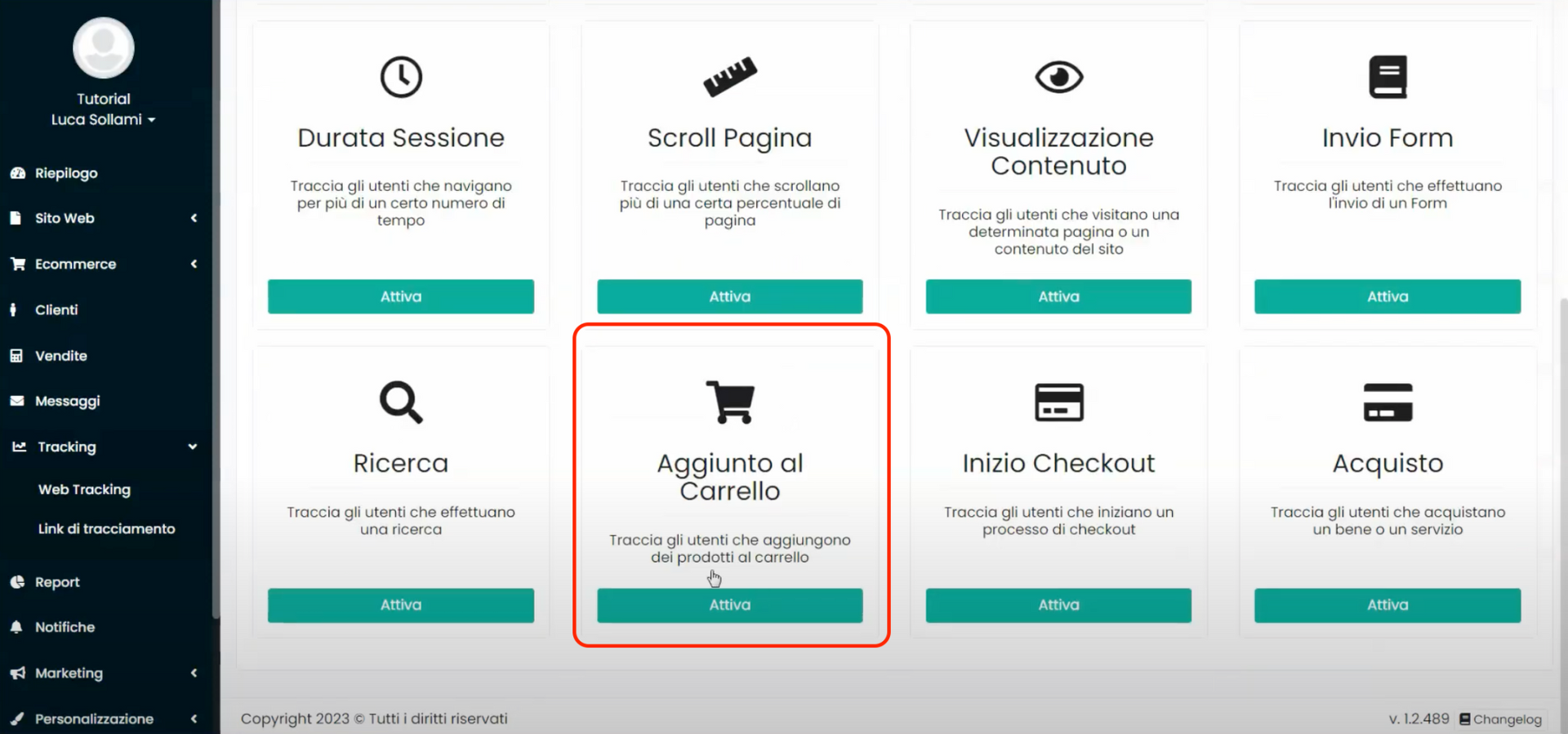
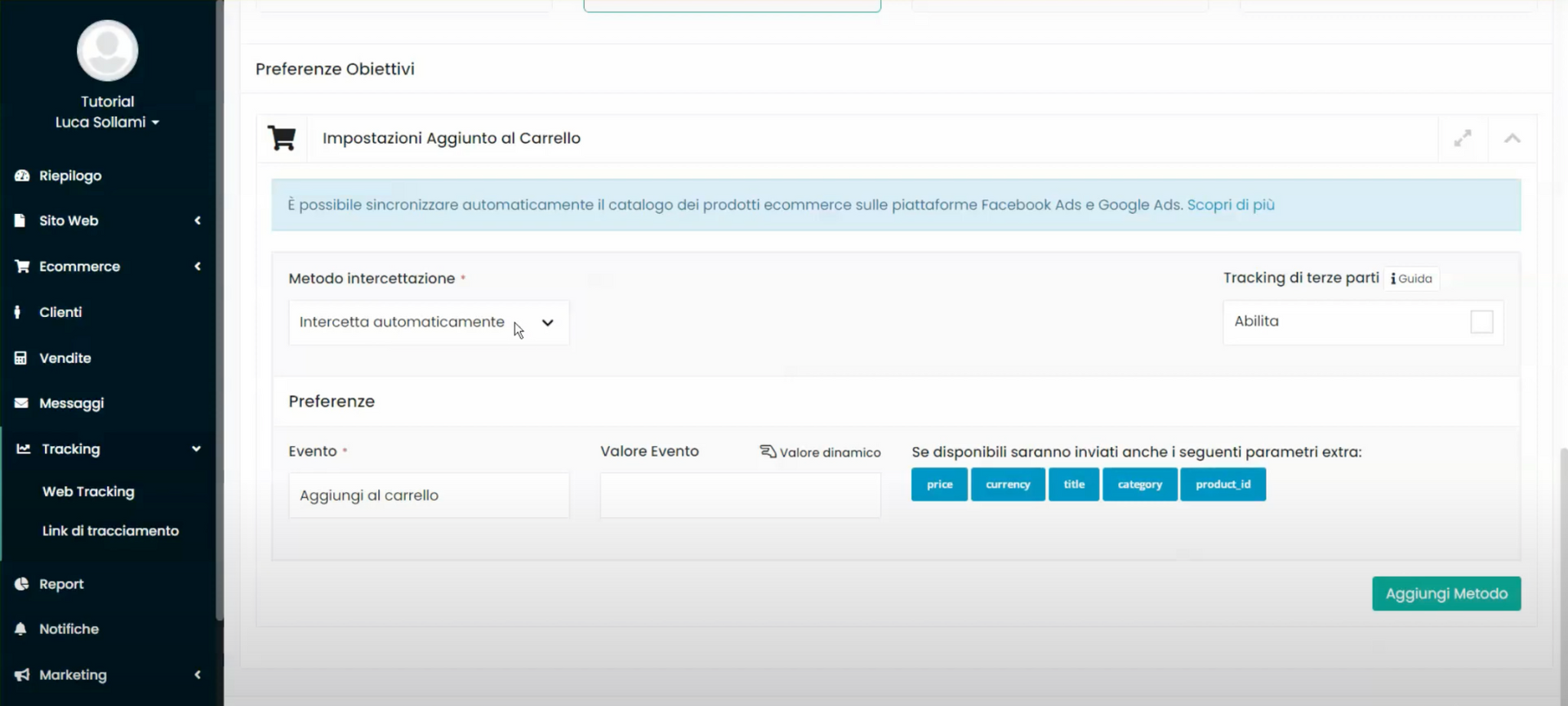
Under the item "Interception Method" we must insert which methodology we want to use to capture the action of adding a product to the cart. If the website was created with Framework360, we will select the option Automatically intercept”. However, if the website was created on a third-party platform, like Wordpress, and we wanted to integrate Framework360, we would need to select the option "Manually track action", at which point an additional box will open allowing us to perform the integration via JavaScript. In our case, we are assuming the use of a site created with Framework360.
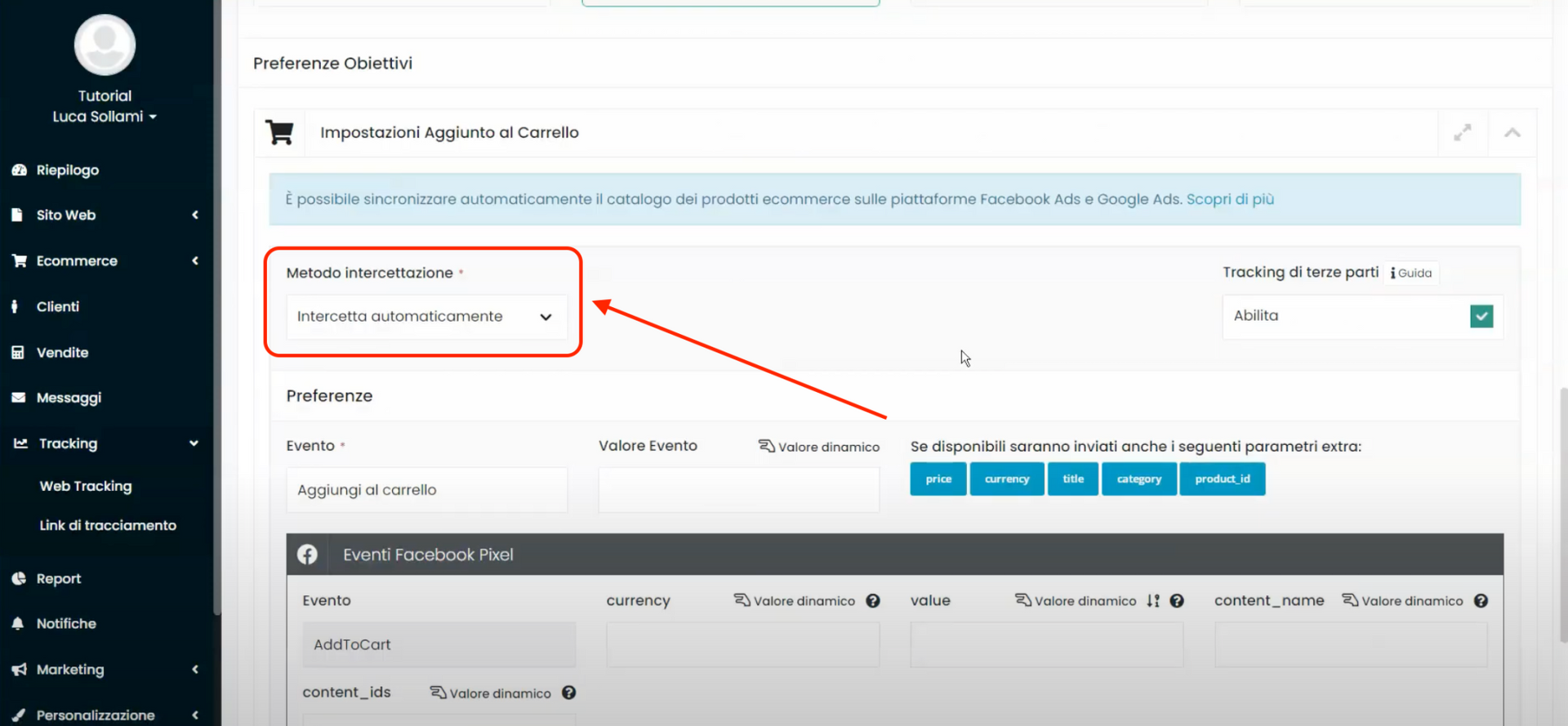
Moving on with the goal configuration, under the "Event" section we can define the event to track, here Framework360 already suggests the event “ Add to Cart”.
![]()
Step 3: We send tracking actions to advertising platforms
If we then want to send tracking actions also to Facebook ADS or other advertising platforms that we have added in the "General" tab, we simply need to enable the "Third-party Tracking" option, always available within the customization box of the “Added to Cart” goal, which is in turn located in the “Goals” tab of our tracking project.
![]()
After enabling third-party tracking, an additional box will open related to the advertising platforms that we have previously inserted. At this point, all we have to do is enable them by clicking on the green button at the bottom right “Add Method”.
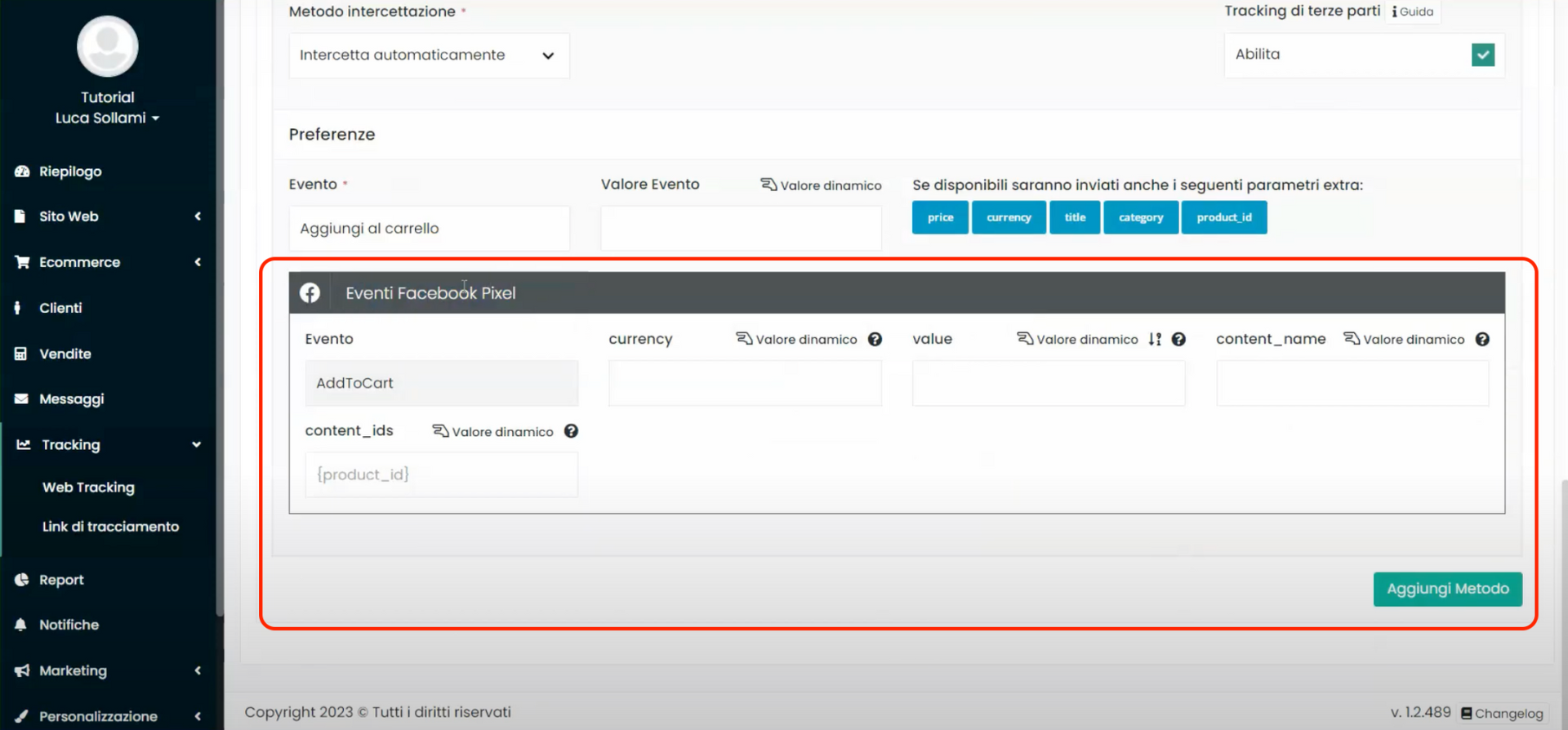
Step 4: Data Tracking
At this point, each time a user adds an item to their cart, the system will send the action to the advertising platforms we set up and will report the action within the tab “Statistics” of our tracking project.
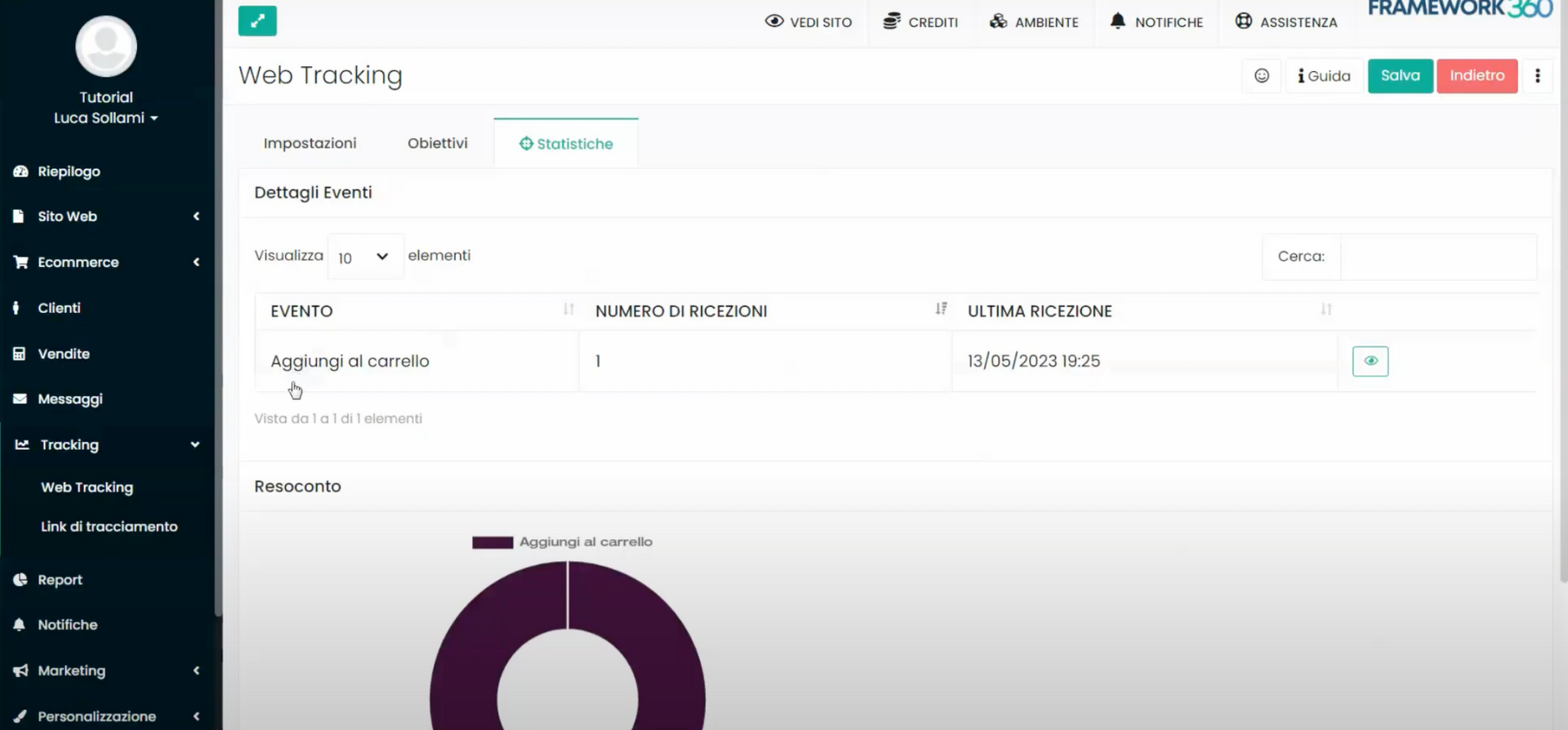
Moreover, by clicking on the eye icon to the right of the event, as shown in the following figure, we will also have the ability to see additional analytic data about the event, including the browser that was used by the visitor, the device (desktop, tablet or smartphone), the operating system (windows, apple or android), the time of conversion, and so on.